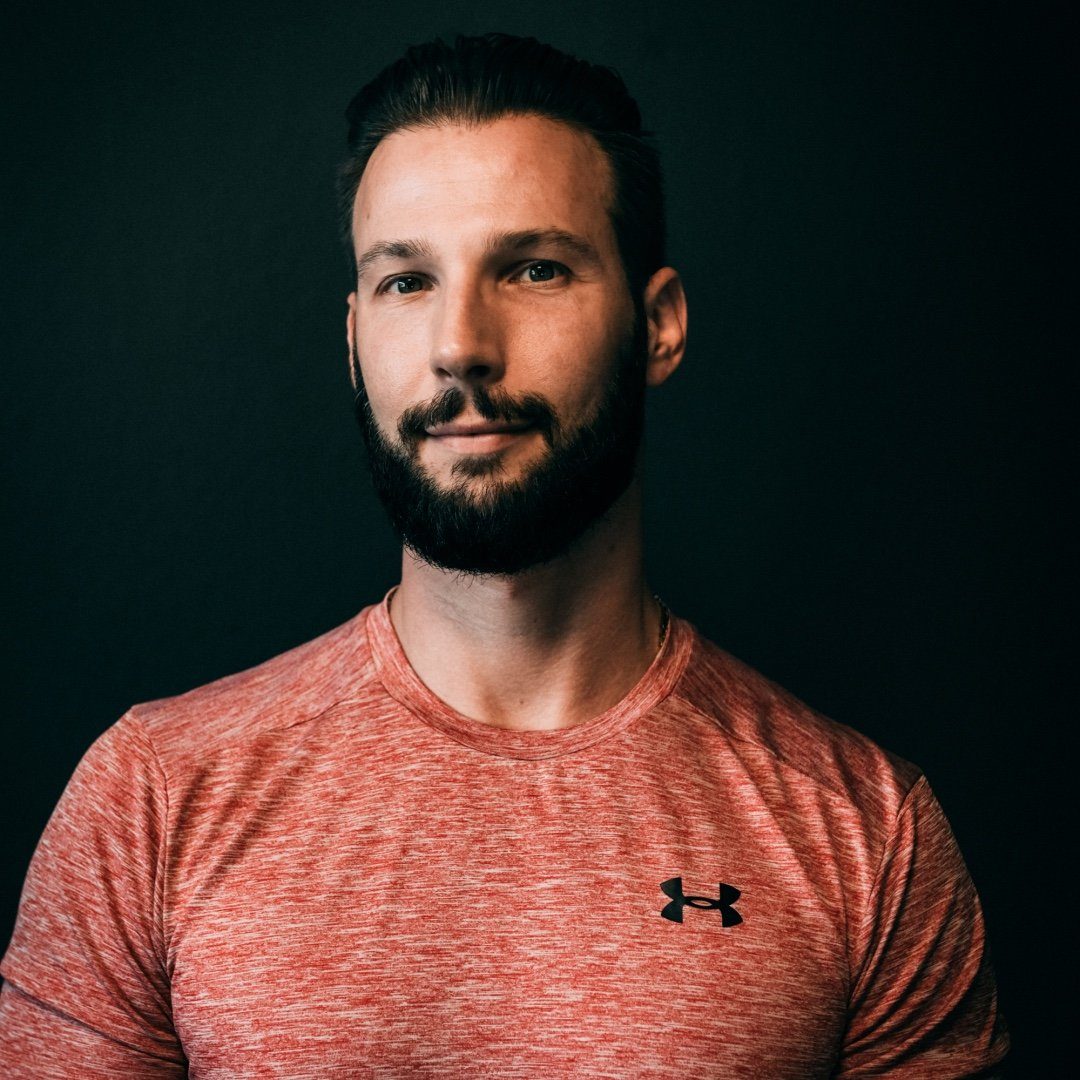COVID-19: Expert information resources on the Coronavirus pandemic, and a guide for a healthy mental attitude for the challenging times ahead
In the current situation we are living in with the Coronavirus there is a lot of misinformation circulating. Bad information only adds to the anxiety and fear levels that are already present, and this is not good for anybody.
With this in mind, I have written this blog containing eight valuable links to information resources featuring experts within the field of contagious diseases, that is, people who know what they’re talking about.
I have then extracted the critical information from these resources and listed them as dot points, in case you do not have the time to go through them all yourself.
Finally, at the end of this blog I have written my own thoughts on mental attitude and behavior standards for when, or if, the situation really gets bad and people are tested. It is during times such as these that we see the best and worst of humanity. Which side will you fall on?
Now is the time for cold, hard facts and accurate information. It is not the time for opinions, or half-truths as we have seen from some of our leaders in government. People need to be given all of the information so they can then make informed decisions.
Links to COVID-19 and Coronavirus resources featuring experts
Please find below some great links featuring experts who will bring you up to speed on COVID-19 and its associated Coronavirus: what has happened so far, historical contexts, what is happening now, projections for the future and best practices for hygiene in order to ‘flatten the curve’.
The Joe Rogan Experience #1439 podcast
Joe Rogan speaks with Michael Osterholm, an internationally recognized expert in infectious disease epidemiology. He is Regents Professor, McKnight Presidential Endowed Chair in Public Health, the director of the Center for Infectious Disease Research and Policy (CIDRAP), Distinguished Teaching Professor in the Division of Environmental Health Sciences, School of Public Health, a professor in the Technological Leadership Institute, College of Science and Engineering, and an adjunct professor in the Medical School, all at the University of Minnesota. He has written a book on infectious disease, “Deadliest Enemy: Our War Against Deadly Germs”.
A great and straight-forward conversation with an expert in the field.
Sam Harris has a conversation with Nicholas A. Christakis, MD, PhD, MPH. He is a Sterling Professor of Social and Natural Science at Yale University, where he directs the Human Nature Lab and is the Co-Director of the Yale Institute for Network Science. He is the author of the New York Times bestseller, Blueprint: The Evolutionary Origins of a Good Society, and known for his research in the areas of social networks, biosocial science, behavior genetics, and public health.
They discuss the likely effects on society, proactive vs reactive school closures, community transmission, false comparisons between coronavirus and flu, the imperative of social distancing, the timeline of the pandemic, Trump’s political messaging, the widespread distrust of expertise, the importance of “flattening the curve” of the epidemic, the possible failure of our healthcare system, gradations of personal response to this threat, and other topics.
Sam Harris sits down with Amesh Adalja, MD, an infectious disease specialist at the Johns Hopkins University Center for Health Security. His work is focused on emerging infectious disease, pandemic preparedness, and biosecurity. Amesh has served on US government panels tasked with developing guidelines for the treatment of plague, botulism, and anthrax. He is an Associate Editor of the journal Health Security, co-editor of the volume Global Catastrophic Biological Risks, and a contributing author for the Handbook of Bioterrorism and Disaster Medicine. Amesh actively practices infectious disease, critical care, and emergency medicine in the Pittsburgh metropolitan area.
They discuss the contagiousness of the virus and the severity of the resultant illness, the mortality rate and risk factors, vectors of transmission, how long coronavirus can live on surfaces, the importance of social distancing, possible anti-viral treatments, the timeline for a vaccine, the importance of pandemic preparedness, and other topics.
A lecture on Coronavirus given by Dr. Amesh Adalja on YouTube
This is the same Amesh Adalja whose credentials are noted above. A valuable and educational lecture given in late February.
An interview with Dr. Bruce Aylward from the WHO on UK’s Channel 4 News
Dr Aylward was in Wuhan for two weeks in February on assignment with his work for the World Health Organisation. He reports on his observations whilst there and gives take-aways on how China handled the outbreak.
TEDx talk given by Alanna Shaikh in March
Global health expert Alanna Shaikh talks about the current status of the 2019 nCov coronavirus outbreak and what this can teach us about the epidemics yet to come. Alanna Shaikh is a global health consultant and executive coach who specializes in individual, organizational and systemic resilience. She holds a bachelor’s degree from Georgetown University and a master’s degree in public health from Boston University. She has lived in seven countries and it the author of What’s Killing Us: A Practical Guide to Understanding Our Biggest Global Health Problems.
This talk provides basic, no-nonsense facts on COVID-19 from an expert.
A comprehensive article written by Tomas Pueyo for Medium
A great article on the Coronavirus outbreak, progression in different parts of the world, projections on what can happen and what we should do. It is long but worth the read. Thank you to my friend Fredrik for sharing this article with me.
This is a short newsletter of concise bullet points, and it’s the only COVID-19 newsletter that I’m subscribed to. It’s not the end-all and be-all, but it’s more reliable than 99.9% of the noise being circulated. This helps keep you out of primary social feeds, which will overwhelm and confuse. Credit to Tim Ferriss for bringing my attention to this resource.
Key Points from the above links on COVID-19 and the Coronavirus
- COVID-19 is to Coronavirus as HIV is to AIDS, I.e. The infection which causes the disease.
- Use social distancing to ‘flatten the curve’. Given that most of us will be exposed sooner or later, we want a smaller amount of cases on any given day, in order to minimise the pressure on the health system.
- There will be no vaccine for 12-18 months.
- Pneumonia symptoms start in the second week, for those who are exposed and will develop these symptoms.
- Call your doctor or hospital first. Don’t just go in and potentially infect others.
- COVID-19 is initially air bourne.
- Coronavirus is worse than the flu.
- Not only the old and sick and affected.
- Follow Nicholas Christakis on Twitter (@NAChristakis) for updates on Coronavirus.
- Those who are exposed will have immunity from a few months to a few years
- Exposed persons can have up to 24 days before showing symptoms, if at all.
- The virus attacks the lungs, like all Coronavirus
- SARS and MERS were also Corona
- ‘Corona’ refers to the ‘spikes’ around the virus which are used to attack cells. ‘Corona’ means ‘crown’ in Spanish.
- This is a great time to stop smoking, as smokers have a harder time with the virus because it attacks the lungs.
- China controlled the outbreak because they could move quickly due to the nature of their government. This is unlikely to be the case in the West, where the onus will be upon the individual.
- There is a six times greater fatality compared to the common flu (6% v 0.1%).
- COVID-19 is spread through coughs and sneezes, by large droplets which can spread up to 6 f The droplets then settle on varioussurfaces.
- COVID-19 can survive on surfaces for a period of time, depending on environment and the surface. The range is from hours up to a day or so.
- Coronavirus seems to hit males harder than females, as with the regular flu.
- Lung damage is possible in more serious cases, resulting in reduced lung capacity.
- There has been complacency since 2003 with developing vaccines for Coronavirus after previous epidemics.
- The WHO states a 5% mortality from the beginning to the end of outbreak (for overwhelmed countries).
- People aged 60-65 years are at a high risk, and people aged 80+ years are very high risk.
- Young, healthy people die as well but it is not understood why. This is the most concerning aspect.
- Coronavirus will be endemic within the human population and will likely reappear in Autumn, because it spreads human to human via the respiratory system.
- Lombardi in Italy seems to be a special circumstance due to its location and the movement patterns of the population. It is not necessarily indicative of how the Coronavirus will behave in other areas.
Measures you can take to support your immune system
Meditating in the morning will set you up for the day with a calm mind that is more resilient to stress.
Consider doing a water fast once a week, if appropriate, for your health. Fasting has a beneficial effect on your immune system by increasing autophagy, as with exercise. Autophagy is your body’s way of increasing efficiency by eliminating the ‘deadwood’, the weak or damaged cells of the body. If food supply becomes an issue, then this will also have the effect of decreasing the burden on the supply chain and your personal supply.
Limit your exposure to social media, which will only serve to increase anxiety and fear. These negative emotions will only suppress your immune system and increase your susceptibility to the Coronavirus.
Make sure you get enough sleep for your mental health and also your immune system.
Eat a healthy diet and consider supplementing with vitamins and minerals to fill in any gaps or shortfalls. Exercise, get as much sunshine and fresh air as you can. Drink enough water.
These measures are basic and seem commonsense, but are worth emphasizing because they do make a difference.
My personal thoughts on mindset and behaviour during the times ahead
Due to the nature of COVID-19 and its associated Coronavirus: how it spreads unseen, how you can be infected without knowing, how it targets the weak and elderly; it is easy to see how an atmosphere of fear and anxiety can be fomented. Add to the mix a negative and fear-based media, along with social media echo-chambers, and those looking to take advantage of the situation; things have the potential to get out of hand.
Now is the time for people to be calm, grounded, and selfless while being sensible. The first thing to do is to listen to the experts (not politicians) and learn the facts, then implement their recommendations as best you can. After that comes your attitude and mindset. What sort of person will you be during the potentially difficult times to come?
In my view there is only one way to be:
Be a source of strength and support for those who need it. A shining light in the dark. Set an example for younger and weaker people. Try not to be a burden on others. Offer to do the groceries for your elderly neighbours so they don’t have to leave their homes as often, potentially exposing themselves to COVID-19. Safeguard the weak and vulnerable. Prevent the unscrupulous from taking advantage of them.
Be a source of calm and rationality. Smile at strangers and be friendly. Don’t fight people in grocery stores for toilet paper!! There are early reports that China is back to 90% production capacity, which is great news.
I have one further link to share with you:
The Tim Ferriss Show podcast #414 with Jack Kornfield
Tim Ferriss speaks with Jack Kornfield, who trained as a Buddhist monk in the monasteries of Thailand, India, and Burma, shortly thereafter becoming one of the key teachers to introduce Buddhist mindfulness practice to the West. He has taught meditation internationally since 1974. Jack co-founded the Insight Meditation Society in Barre, Massachusetts, and the Spirit Rock Center in Woodacre, California. He holds a PhD in clinical psychology and is a father, husband, and activist.
This conversation is for those who are feeling especially anxious about the current Coronavirus situation and is described by Tim as a self-therapy session for himself, as he is suffering from feelings of anxiety with regards to his elderly parents. Jack gives some great insights and wisdom for these times.
One last thought
There are lessons to be learnt here, again, with regards to living out of balance with nature. This is not the first time that an outbreak has occurred (not only in China) because people are treating animals as commodities, as meat robots, rather than treating them with more respect and behaving as their guardians and neighbours in this world.
Where in the natural world do we see animals of different species who don’t have a symbiotic relationship, living in close proximity, piled atop one another over long periods of time? Again, we are shown that when we live out balance with the natural order, nature will take steps to correct the balance. This will keep happening, as it has in the past, until we change our practices.
Most religions believe we are made in the image of a God or Creator, and/or believe that we have a divine spark within us, which sets us apart from the rest of the animal kingdom. That we are special in some way. If this is so, then now is the time to prove it.









